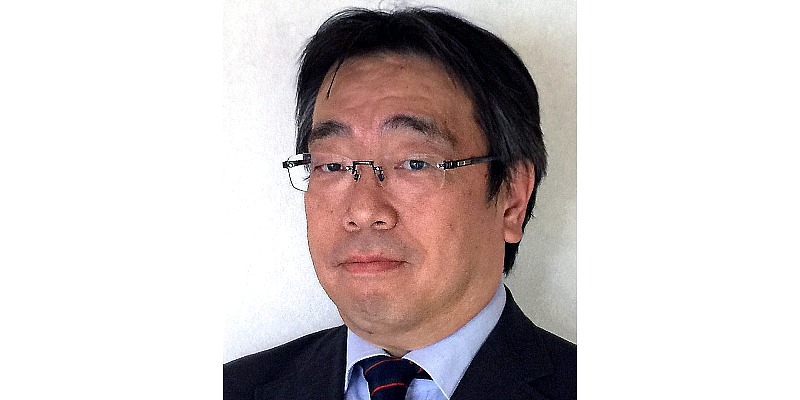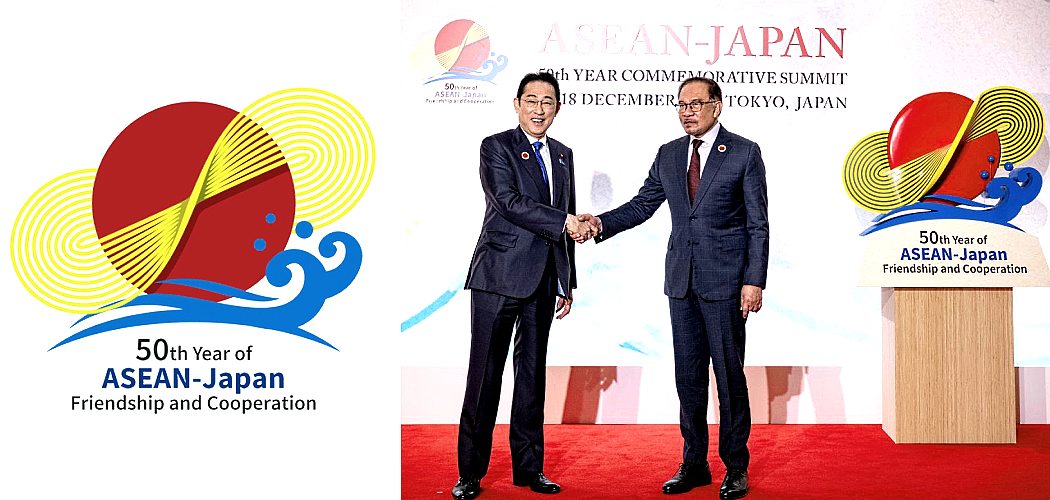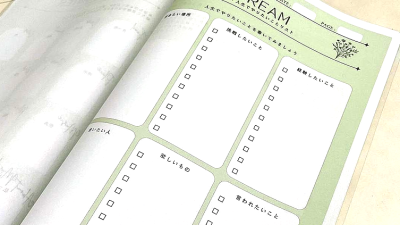
2023 is the 50th Year of ASEAN-Japan Friendship and Cooperation.
The Commemorative Summit for the 50th Year of ASEAN-Japan Friendship and Cooperation was held in Tokyo from December 16–18.
he “Joint Vision Statement: On ASEAN-Japan Friendship and Cooperation—Trusted Partners” adopted at the summit meeting declared “ASEAN and Japan will strengthen the Comprehensive Strategic Partnership that is meaningful, substantive, and mutually beneficial […], embracing ASEAN unity and centrality.”
Emphasizing “Partners for Co-creation,” they confirmed that ASEAN and Japan will continue to promote mutual cooperation in many ways.
This was a major step toward future ASEAN-Japan cooperation.
The ASEAN Study Group in Tokyo (ASGT), which meets at the ASEAN-Japan Center (AJC), an international organisation in Tokyo, chaired by the author, has compiled and published “Ten Recommendations to Enhance ASEAN-Japan Relations through Economic Cooperation,” as well as “The Collection of Papers for the 50th Year of ASEAN-Japan Friendship and Cooperation.”
ASGT is a study group that includes approximately 170 ASEAN experts from industry, government, and academia, and was established in 2015 when the ASEAN Economic Community (AEC) was established.
ASGT continues to conduct research on ASEAN, including ASEAN economic integration and Japan-ASEAN cooperation.
The 48th study session was held in October 2023.
ASEAN is an extremely important entity in East Asia. It is the oldest regional cooperation and the deepest economic integration in East Asia.
In 1992, the country moved towards establishing the ASEAN Free Trade Area (AFTA), and in 2015 it established the AEC. It is also central to regional cooperation and economic integration in East Asia.
The Regional Comprehensive Economic Partnership (RCEP) proposed by ASEAN also entered into force in 2020.
ASEAN and Japan began cooperation in 1973, and for half a century since then, ASEAN and Japan have built a friendly and cooperative relationship.
The Japan-ASEAN relationship has become extremely important under the current difficult economic conditions in East Asia and the world.
ASGT’s “Recommendations” section made the following ten recommendations for future ASEAN-Japan cooperation, focusing on the economy.
1. Japan must develop a long-term ASEAN strategy that considers ASEAN’s vision for the future. This should involve creating policies that will have a positive impact on ASEAN.
Additionally, Japan should engage in serious dialogue with ASEAN to explore collaborations and promote more two-way cooperation.
2. ASEAN-Japan should cooperate to maintain and expand a regime of free trade and investment, while simultaneously building a resilient and stable supply chain.
3. ASEAN ought to convey a resolute message to reinforce the ASEAN Economic Community (AEC), diminish non-tariff barriers and staunchly uphold regional trade liberalization.
Regional economic frameworks such as the Regional Comprehensive Economic Partnership (RCEP), the Comprehensive and Progressive Agreement on Trans-Pacific Partnership (CPTPP) and the Indo-Pacific Economic Framework (IPEF) in East Asia should be used to further promote regional economic integration, particularly in ASEAN.
4. The support of mainstreaming and materialization of the ASEAN Outlook on the Indo-Pacific (AOIP) is essential.
To encourage private sector involvement, an ‘Indo-Pacific Business Advisory Committee’ joined by business circles of ASEAN and dialogue partners including Japan must be established.
5. Cooperation in the manufacturing sector, such as the automotive industry, should be further promoted.
The development of the electric vehicle (EV) industry, which is also an important issue, should include ASEAN-origin products in local procurement regulations, taking into account the interest of the region as a whole, maintaining the free trade regime and avoiding protectionism.
6. ASEAN should expand and deepen its connectivity while simultaneously strengthening its connectivity with neighboring regions.
7. Japan should collaborate with ASEAN to establish rules for trustworthy and unrestricted data sharing.
Additionally, the collaboration should leverage digital technology to address economic and social issues.
8. ASEAN should ensure a stable energy supply necessary for economic development and actively promote green transformation.
ASEAN should ensure regional food security through cooperation and coordination, and strengthen mechanisms for member states to cooperate in dealing with food crises.
9. Public-private sector promotion should be considered in light of the needs and issues of increasing trade and investment transactions denominated in ASEAN currencies.
10. The promotion of mutual exchanges between young people should be prioritized.
It is recommended that a policy research network consisting of universities and research institutions, as well as an exchange fund be established to facilitate intellectual exchanges between Japan and ASEAN.
Such measures will strengthen ties and foster greater cooperation between the two regions.
I would be grateful if this proposal would be of help towards future cooperation between ASEAN and Japan.
In addition, the “Papers” section of the “Commemorative essay collection” contains 13 papers written by experts, and the “Essays” section contains 17 essays.
This year marks the starting point for the next 50 years of Japan-ASEAN friendship and cooperation.
Cooperation and collaboration between Japan and ASEAN will be even more essential in the future.
It is also essential for East Asia and the world economy.
References:
- Ten Recommendations to Enhance ASEAN-Japan Relations through Economic Cooperation
- The Collection of Papers for the 50th Year of ASEAN-Japan [in Japanese]

(Kazushi Shimizu is Professor at Kyushu University, Japan.
ADVERTISEMENT
ADVERTISEMENT








































